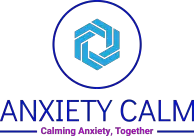
This article will provide you with evidence-based coping mechanisms to help you navigate the challenges of anxiety.
From engaging in regular physical activity to practicing stress management techniques, we will explore various ways to manage anxiety and improve your overall well-being.
So, let’s dive in and discover the tools that can empower you to take control of your anxiety and live a happier, healthier life.
Key Takeaways
- Regular physical activity, such as exercise, can be a powerful stress reducer and improve overall mental health.
- Avoidance of alcohol, recreational drugs, smoking, and excessive caffeine intake can help reduce anxiety symptoms.
- Utilizing stress management and relaxation techniques, such as visualization, meditation, and yoga, can effectively reduce anxiety.
- Prioritizing sleep, maintaining a healthy diet, and adhering to a treatment plan are essential for managing anxiety and promoting a healthier mind.
Understanding the Causes of Anxiety
Consult with a healthcare provider to understand the underlying causes of your anxiety and discuss suitable treatment options. Identifying triggers is an important step in managing anxiety. Triggers can be situations, thoughts, or emotions that lead to increased anxiety.
Seeking professional help can provide insight and guidance in identifying these triggers. A mental health professional can help you explore the root causes of your anxiety and develop personalized coping strategies. They can also offer evidence-based treatments such as cognitive-behavioral therapy or medication if necessary.
Implementing Healthy Coping Mechanisms
Prioritize incorporating regular physical activity into your routine as a powerful stress reducer and mood enhancer. Developing relaxation techniques is essential for managing anxiety.
Incorporating physical activity into your daily life can be an effective way to relieve stress and improve your overall well-being. Start by developing a routine for regular physical activity. Exercise has been shown to reduce stress and improve mood. It’s important to start slowly and gradually increase intensity to avoid injury. Consistency is key, so make sure to prioritize physical activity as part of your self-care routine.
Additionally, developing relaxation techniques such as visualization, meditation, and yoga can help ease anxiety. Find what works best for you and incorporate these techniques into your daily routine.
Enhancing Sleep and Restful Habits
Make sure you establish a consistent bedtime routine and create a comfortable sleep environment to enhance your restful sleep. Improving sleep quality is essential for optimal mental health and overall well-being.
A bedtime routine can signal to your body that it’s time to unwind and prepare for sleep. Try to go to bed and wake up at the same time every day to regulate your sleep-wake cycle. Incorporate relaxing activities like reading or taking a warm bath before bed.
Creating a comfortable sleep environment involves keeping your bedroom cool, dark, and quiet. Use comfortable bedding and invest in a supportive mattress and pillows. Avoid stimulating activities and electronics before bed to promote better sleep.
Nurturing a Balanced Diet for Mental Well-being
Ensure you incorporate a variety of nutrient-rich foods into your diet to support your mental well-being and overall health. Exploring dietary triggers and incorporating mindfulness into meals can have a significant impact on managing anxiety.
Here are three ways to nurture a balanced diet for mental well-being:
- Eat whole, unprocessed foods: Choose fresh fruits, vegetables, whole grains, lean proteins, and healthy fats. These foods provide essential nutrients that support brain health and help regulate mood.
- Limit processed and sugary foods: Processed foods and added sugars can contribute to inflammation and worsen anxiety symptoms. Opt for natural, unprocessed options whenever possible.
- Practice mindful eating: Slow down and pay attention to your meals. Engage your senses and savor each bite. Mindful eating can help reduce stress, improve digestion, and enhance the enjoyment of your food.
Building a Strong Support System
Connect with trusted individuals who can offer understanding, encouragement, and support as you build a strong network to help manage your anxiety. Seeking professional help is an important step in developing a support system.
A mental health professional can provide guidance, therapy, and treatment options tailored to your specific needs. Additionally, seeking support from friends and family can play a crucial role in your journey towards better mental well-being.
They can offer a listening ear, empathy, and practical assistance when needed. Sharing your experiences and feelings with loved ones can provide a sense of validation and help alleviate feelings of isolation.


